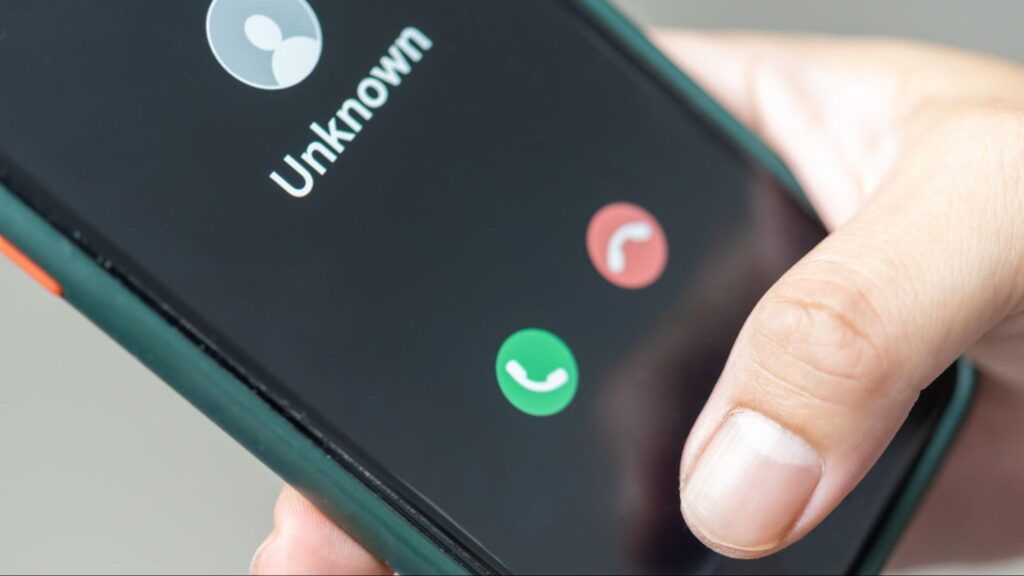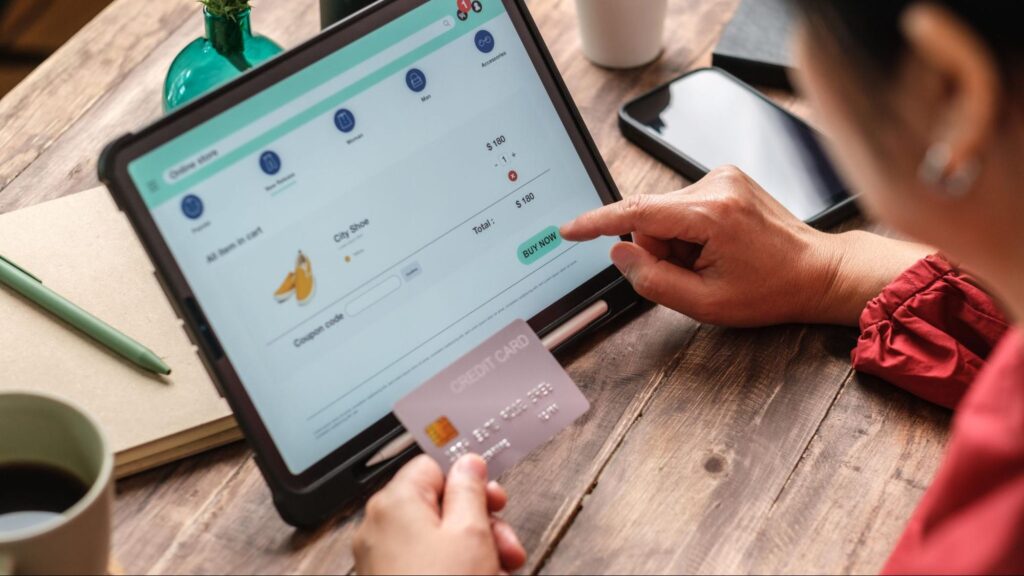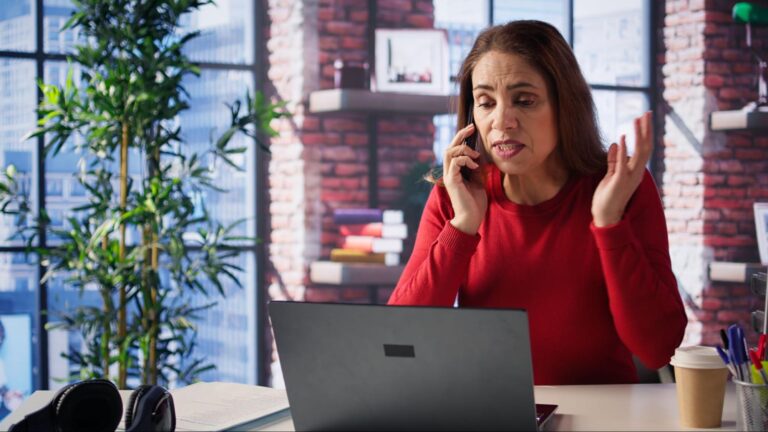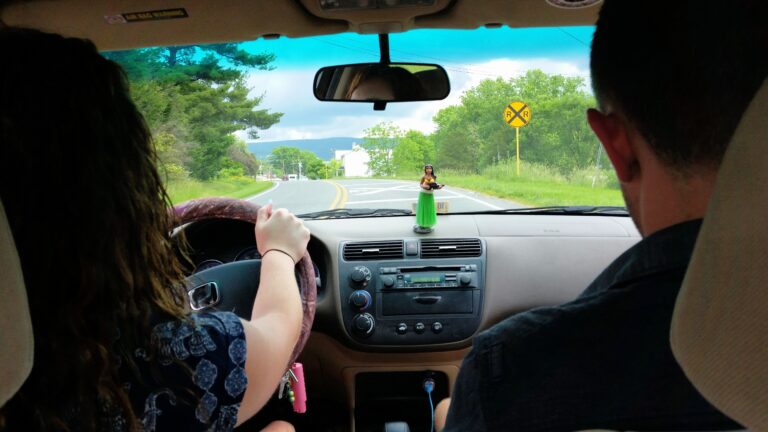You’re driving home on I-95 when another car suddenly hits you. The next few moments are filled with confusion, phone calls, and stress.
As you deal with insurance and repair issues, your phone buzzes with messages from people claiming they can help with your case. Some even promise fast cash or big settlements.
It’s an easy time to make quick decisions, but that’s exactly when scammers strike. In Florida, fake lawyers and “ambulance chasers” often target accident victims within hours of a crash. They sound professional, but their real goal is to take your money or personal information.
This guide will help you recognize the 7 red flags, verify whether someone is a legitimate Florida attorney, and know what steps to take if you suspect a scam.
Common Legal Scam Tactics After a Car Accident
Fake lawyers often appear when you’re vulnerable. They may call or text saying they “heard about your accident” and want to help file your claim.
This kind of direct contact is not only unethical but also likely illegal under The Florida Bar’s Rule 4-7.18, which prohibits attorneys from soliciting accident victims within 30 days of a crash.
These scammers use pressure tactics, make unrealistic promises, and often demand quick decisions. Some even request cash upfront or avoid putting anything in writing. A genuine Florida attorney will never do that.

1. High-Pressure Tactics and Quick Settlement Promises
Scammers know that stress makes accident victims more vulnerable. After a crash, they often use urgency to push you into decisions before you have time to think. They might warn you that “time is running out” or that “your case could expire” if you don’t act immediately.
This kind of manipulation is meant to create panic and prevent you from verifying who they really are.
It’s true that there are real deadlines in Florida that affect how and when you can file a claim or receive certain benefits. For example, under the Florida No-Fault law, you generally have 14 calendar days to seek medical attention after an accident if you plan to file a Personal Injury Protection (PIP) claim, for the purpose of helping yourself with medical expenses. Failing to act within this period could affect how much compensation or coverage you’re entitled to receive.
However, ethical attorneys will explain these rules clearly. They’ll help you understand the timeline and what steps you need to take, without pressure or scare tactics. Fake lawyers, on the other hand, often twist real deadlines to make you act before you can verify their credentials.
A legitimate Florida attorney will always take the time to review your accident details, medical reports, and insurance documents before advising you. If someone promises instant results or demands you sign immediately, it’s a clear red flag.
2. Lack of Transparency About Credentials and Fees
Transparency is one of the biggest signs of legitimacy. Real lawyers are proud to show their qualifications and will happily provide their Florida Bar number, which you can verify at floridabar.org.
Fake lawyers, however, tend to be vague. They may dodge questions, use confusing titles like “case consultant,” or even pretend to be working with a real firm.
You can test transparency by asking simple questions:
- “What is your Bar number?”
- “Can you send me your retainer agreement?”
- “Who is the managing attorney at your firm?”
If they avoid answering or get defensive, that’s a sign to end the conversation.
Real attorneys also explain fees upfront. Most personal injury lawyers in Florida work on contingency, meaning you pay nothing unless your case is settled.
If someone demands cash or promises special treatment for quick payment, they’re not legitimate.
3. No Physical Office or Online Presence

A law firm that doesn’t exist online should raise concerns. Every legitimate attorney has a traceable presence: a website, a verifiable address, client reviews, and a phone number listed publicly.
Scammers often use fake or shared addresses. Some even “borrow” the names of real firms or claim to work remotely to avoid questions.
If you look up the address they give and find an empty office suite or no signage, you’re likely dealing with a fraud.
Always check Google Maps or legal directories or search the firm’s name to confirm they actually exist and are in good standing.
If you’re unsure where to start, you can call 844 324 HURT to connect directly with verified, licensed personal injury attorneys in Florida. Our team only works with true legal professionals, so you can get help with confidence.
4. Fake or Unverified Bar License
Every practicing lawyer in Florida must be licensed by The Florida Bar. This isn’t optional. Verifying a Bar license is easy, and it’s the fastest way to protect yourself from impostors.
When you visit floridabar.org and use the “Find a Lawyer” tool, you’ll see the attorney’s name, Bar number, disciplinary record, and whether they’re active or suspended.
If you can’t find them, they’re not real lawyers. Some scammers will show you fake “certificates” or say they’re “pending renewal,” but The Florida Bar updates its listings in real time. If their name isn’t there, walk away.
5. Unusual Payment Requests

Payment methods reveal a lot about professionalism.
In Florida, legitimate personal injury attorneys never ask for upfront fees or personal payments through apps like Venmo, Cash App, or Zelle.
A real firm will explain its contingency fee structure in writing, showing exactly what percentage they’ll receive if your case is settled.
These contracts are standardized and approved by The Florida Bar, ensuring fairness and transparency.
If someone wants money immediately, asks for gift cards, or insists on “holding” funds for you, that’s a scam. Always request written proof of how payments will be handled and never transfer money outside official firm procedures.
6. No Written Agreement
Contracts protect both you and your lawyer. A genuine attorney will always provide a written agreement that explains the scope of work, fee percentage, and your rights as a client.
Scammers prefer to keep everything verbal. They may say, “We’ll handle it later” or “You don’t need to worry about paperwork yet.” Without a written contract, you have no legal protection.
A clear, signed agreement is your proof that you’re working with a licensed professional who’s accountable to Florida Bar standards. If they refuse to provide one, stop the conversation immediately.
7. Poor Communication and Unprofessional Behavior
Communication style can reveal credibility faster than anything else. Real attorneys write clearly, follow up promptly, and maintain a professional tone in every interaction.
Fake lawyers often send sloppy texts, unstructured emails, or messages full of grammatical mistakes. They may also avoid answering specific questions about your case or change their story mid-conversation.
Professional behavior also includes respect for your time and privacy. If someone becomes impatient, overly aggressive, or tries to intimidate you into signing, they’re not a professional.
A licensed attorney will always take time to explain things in plain language and ensure you understand each step.
What to Do If You Think You’ve Been Targeted
If you suspect that someone pretending to be a lawyer has contacted you, follow these steps immediately:
- Stop all communication. Don’t respond to calls or messages.
- Save all evidence. Keep texts, emails, and voicemails as proof.
- Verify their license. Use The Florida Bar’s search tool at floridabar.org.
- Report the scam. Contact The Florida Bar’s Consumer Protection Division at (850) 561-5600 or file a complaint online. If you’ve lost money, also reach out to your local police department or the Florida Attorney General’s Office.
Find real legal help. You can always connect with verified, experienced Florida personal injury attorneys by calling 844 324 HURT. You’ll be connected directly with licensed professionals who can answer your questions and guide you through your next steps.
Checklist for Verifying Attorneys After an Accident
Task
- Bar License
- Office Address
- Online Presence
- Fees Explained
- Experience
- No Pressure
- Professional Communication
What to Check
- Confirm active Florida Bar membership
- Must have a real, physical location
- Consistent website and listings
- Written contingency agreement
- Track record with car accident cases
- Space to decide
- Organized, clear, and responsive
How to Verify
- Visit floridabar.org and use “Find a Lawyer.”
- Look it up on Google Maps and check reviews.
- Check that their information is consistent across credible legal directories
- Florida requires clear fee disclosure.
- Ask about similar cases or client results
- Real attorneys give you time and respect your decision.
- Look for consistent professionalism in tone and detail.
Protect Yourself from Legal Scams in Florida
A car accident is already stressful and being scammed by a fake lawyer makes it worse. Understanding how to recognize red flags and verify an attorney’s license can protect your finances, your rights, and your peace of mind.
Florida provides strong consumer protections through The Florida Bar, and resources like 844 324 HURT make it easier to connect with verified, experienced attorneys you can trust.
Take your time, ask questions, and never rush into an agreement. The right lawyer will always be patient, transparent, and focused on your best outcome.
Frequently Asked Questions
How can I verify a lawyer in Florida?
To confirm whether a lawyer is licensed to practice in Florida, visit floridabar.org and use the “Find a Lawyer” tool. This resource lists each attorney’s Bar number, current status, and any disciplinary history. A verified lawyer will have an “eligible” or “active” status and up-to-date contact details that match what they’ve shared with you. If anything looks inconsistent, it’s best to stop communication and confirm through an official source or call 844 324 HURT for guidance connecting with verified attorneys.
Can lawyers contact accident victims directly in Florida?
No. Florida’s professional conduct rules strictly forbid lawyers from contacting accident victims for at least 30 days after a crash. This is outlined under The Florida Bar’s Rule 4-7.18, which aims to protect victims from being pressured or misled during a stressful time. If someone calls, texts, or messages you right after a collision claiming to be a lawyer, that contact is considered unethical and potentially unlawful solicitation. Always take note of the details and report it if necessary.
What if someone claims to represent a well-known firm?
Scammers often use the names of legitimate law firms to appear credible. If this happens, search the firm online and contact them through their official phone number or website, not the number provided by the caller. A quick verification call can confirm whether that person truly works there. If you’d rather not handle the research yourself, you can call 844 324 HURT to be connected with legitimate, verified personal-injury attorneys who are fully licensed in Florida.
Is it normal for a personal-injury lawyer to ask for payment upfront?
No. Real personal-injury lawyers in Florida operate on a contingency-fee agreement, which means they only get paid when you win your case. There should never be requests for cash deposits, wire transfers, or app payments before legal services begin. If anyone insists on upfront money, especially right after your accident, it’s a clear warning sign that they are not legitimate.
What are the risks of working with a fake lawyer?
Hiring someone who isn’t licensed can have serious consequences. You could lose money, expose your personal data to fraud, or unknowingly sign away your legal rights. Fake lawyers may mishandle documents, delay your claim, or disappear altogether. Always verify credentials before sharing sensitive information or signing paperwork. If you’re uncertain, call 844 324 HURT to get connected with a trusted Florida attorney who has been verified through official channels.








